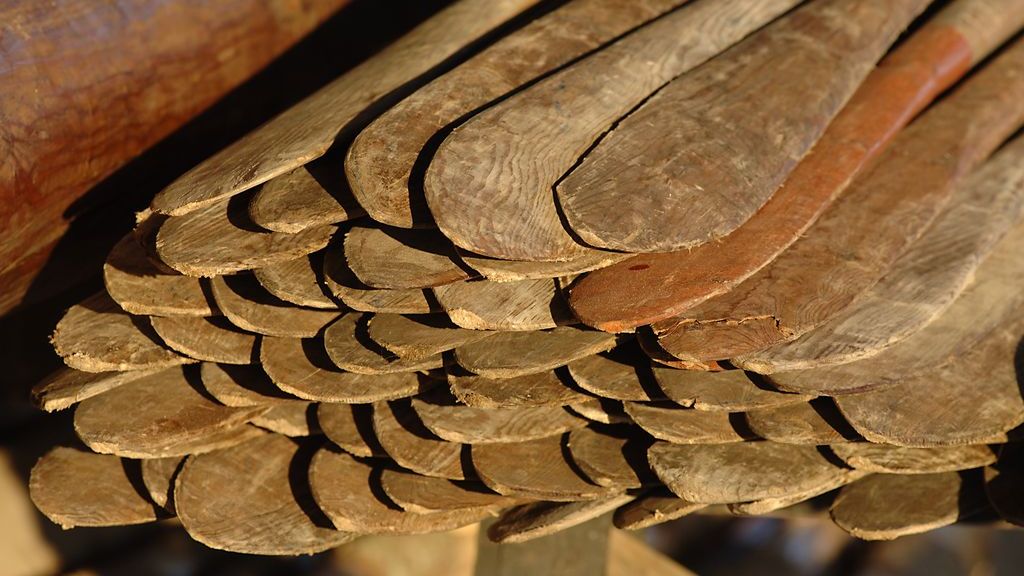On Saturday 20 June it will be 40 years since King Frederik IX inaugurated the Viking Ship Hall in Roskilde. The day will be celebrated with special guided tours, open access to the Sea Stallion, publication of a book, the boatyard will be open to the public etc. There will also be free admission all day for both adults and children.
There will be plenty of opportunities to get close to the work with the Viking ships, past, present and future. The high-points of the day are listed in the programme below.
The Viking Ship Museum can look back over 40 wonderful years. The director of the museum, Tinna Damgaard Sørensen, writes the following in a feature article in the Roskilde Avis newspaper about the early years: ”Like in all good stories, there have been ups and downs, but generally the museum can celebrate the anniversary as a great success”.
The work with the Viking ship find from Skuldelev began more than 10 years before the inauguration of the Viking Ship Hall. It was in 1957 that archaeologists from the National Museum of Denmark first discovered one of the most important archaeological finds of the 20th century. The excavations began in 1962. The excavations at Skuldelev, the construction of the Viking Ship Hall and the setting up of the original ships attracted a great deal of interest from the very beginning.
From the beginning, the vision has been to create a living museum. Since then, about 6 million people have visited the museum and the 5 Skuldelev ships and have followed the building of both the reconstructions and the new constructions. The Viking Ship Museum is the world leader in the field of marine archaeology and experimental archaeological research and now, since the trial voyage of the Sea Stallion of Glendalough from Roskilde to Dublin in 2007 and return in 2008, the Viking Ship Museum is known around the world and has helped to put Roskilde on the world map.
The Viking Ship Museum was already a major tourist attraction even before it opened. The director of the museum at the time, civil engineer and museum curator Ole Crumlin-Pedersen, was quoted on the opening day as stating that there had been over 10,000 visitors on guided tours around the Hall in the year before the actual opening. According to the newspaper Roskilde Tidende from 20 June 1969, Ole Crumlin-Pedersen emphasised that “the board had expressed a wish to already open now (5 years before the Viking ships were expected to be completed, ed.), since the intention is that the Viking Ship Museum should be a living museum where the public can follow the exciting restoration work”.
The building was designed by Professor and Architect Erik Chr. Sørensen, who won the architecture competition with his late-modern building design, which was clearly inspired by Japanese architecture and is a rare example of the ’brutalist’ style.
Quote:
‘On front of the visitors’ eyes, the Viking ship builders’ creative talent, the archaeologists’ research talents and the architect’s design art all combine in harmony.
Berlingske evening edition, weekend 21 June 1969.
The Viking Ship Hall became a listed building in 1997.





